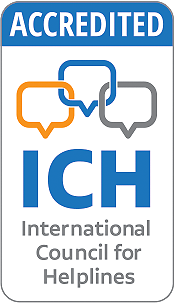Navigating the Insurance Landscape
You should ask insurance providers and substance use disorder treatment providers the following questions to ensure you or a loved one receives high quality care covered by your insurance plan.
Questions to Ask Your Insurance Provider
- What levels of care are covered?
Levels of care include withdrawal management, inpatient, intensive outpatient, outpatient and residential. Commercial health insurance covers medical treatment, however residential programs costs (half-way house or long-term residential) are generally not covered, except for clinical care provided. Public programs, such as Medicaid, may cover residential programs for those who qualify.
- Is medication-assisted treatment (MAT) covered?
State-regulated insurance companies are legally required to provide coverage for MAT, using outpatient drugs such as Buprenorphine, Suboxone, or Vivitrol. Check with your insurance company to see which medications are included. If you are denied coverage for a medically necessary drug, you can ask your doctor to seek an exception to the formulary and appeal if that request is denied.
Questions to Ask Treatment Providers
- Is your facility an in-network provider?
Families should inquire whether the facility is an in-network provider since your out-of-pocket costs will be significantly lower rather than choosing an out-of-network facility. It is unnecessary for the individual to choose out-of-network or out of state providers to receive quality care. We encourage locating a provider closer to home as there will be an opportunity for family members to tour the facility, speak to staff, participate in the treatment plan of their loved one and receive ongoing support.
- Do you do any additional testing which would not be covered under my insurance plan?
Families should ask if the facility conducts any additional testing such as random urinalysis or DNA testing because this practice can very expensive and unnecessary. Billing for these services is separate from the daily rate of treatment services and there is little evidence to support the need for excessive testing.
Know Your Insurance Rights
It is vital for individuals and families to know their rights when it comes to insurance. Federal and state laws require the coverage of substance use disorder treatment.
- The Mental Health Parity and Addiction Equity Act (MHPAE) requires that private insurance plans cover addiction treatment in a comparable manner to other physical and mental health treatment including:
- Annual or lifetime limits on the amount of coverage
- Deductibles, copayments and other cost sharing requirements
- Limits on the number of visits to healthcare provider
- Coverage of treatment by out of network providers
- The Affordable Care Act (ACA or Obamacare) requires virtually all insurers to cover 10 Essential Health Benefits, including mental health and addiction treatment on an equal basis with the treatment of physical healthcare.
- Some self-insured plans created before the effective date in 2010 may not be covered
- Large group plans (51 employees or more) are not required by the ACA to cover all 10 Essential Health Benefits but must provide minimum value – at least 60% of the total cost of medical services for a standard population





